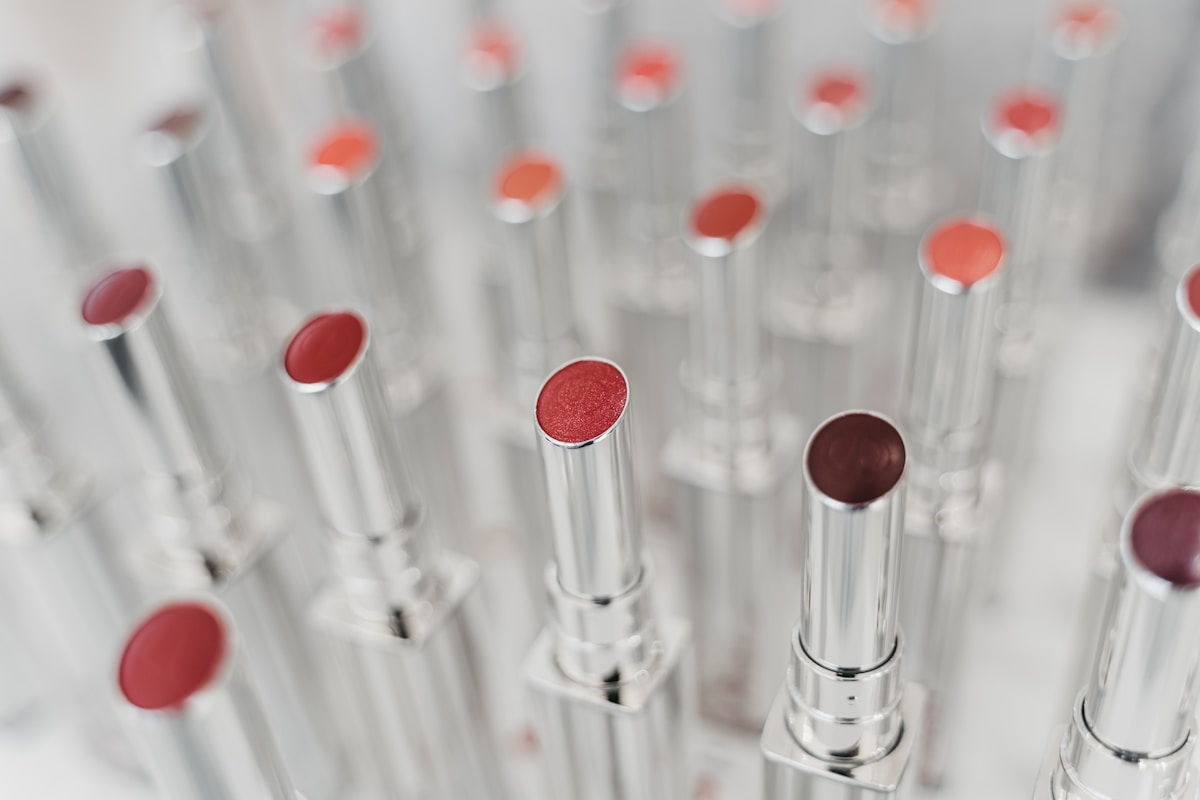
COVID-19's Effect on the Cosmetics Industry

COVID-19's Effect on the Cosmetics Industry Pre-pandemic, the cosmetics industry remained one of the most booming and ever-growing markets. However, with the dramatic transition to a strictly remote and digital world, further strengthened by masks replacing lipsticks in purses, the beauty industry became one of COVID-19’s most affected victims, forcing brands to get creative to stay in the game.
Cosmetics brands could no longer innovate within their familiar realms of foundation shades and lip gloss colors but had to dramatically pivot to new, unfamiliar needs, whereby people would cover half of their faces, if not remain as a pixel square on their boss’ Zoom screens. Lip products, face makeup, and fragrances were among the most declined sources of revenue for cosmetics companies, while body, nail, and hair coloring products sales increased, due to the closure of spas and hair and nail salons.
Despite the drastic changes in the world, many cosmetic companies have proven to be just as resilient and responsive to worldly changes, with brands like Orly, a drugstore nail polish brand, even releasing a line of hand sanitizers, and Elf, a drugstore makeup brand, releasing new skincare products.
Brands started heavily, if not solely relying on digital media to keep their empires afloat, replacing the pre-pandemic department store browsing experience. With in-store swatching, sniffing, and testing becoming impossible and unsafe under the circumstances of the pandemic,
marketing strategies inevitably pivoted to cater to better online shopping experiences and advertisements more catered to address the circumstances of the pandemic on social media platforms. The beauty industry went digital, with brands like Estee Lauder launching “virtual try-on”, and Sephora offering makeup classes that were once popularized as an in-store experience, online.
With makeup no longer being a day-to-day necessity for many, one particular branch of the cosmetics industry has proven to not only survive but thrive within the consumer market during the era of the pandemic: skincare. With self-care being the new sense of beauty and “maskne” being one of the new concerns in the world of the “new normal,” a daily skincare regimen has triumphed over the daily makeup routine.
TikToker and “Skinfluencer” Hyram Yarbo, under the screen name “SkincareByHyram,” has massively impacted people’s perception of skincare, commentating on luxury skincare products, celebrity skincare regimens, and unclean ingredients in supposedly “clean” and “purifying” products. With skincare becoming the most popularized form of self-care, Hyram’s demystification and simplification of skincare have compelled even the youngest of Gen Z to start taking preventative care of their skin. Certain luxury brands have even been forced to revisit their ingredient lists, while affordable skincare brands with clean ingredients, such as Hyram’s holy grail brands like the Inkey List and Cerave were no longer overlooked for their price point, but became the most sought-after products.
According to Vogue Business, home spa tools and serums notably saw a boom in sales, with skincare fridges seeing a 203% increase and Niacinamide (another Hyram-approved product) seeing a 193% increase. Evidently, with trends circulating social media with the help of fresh faces like Hyram’s and less idealistic influencers, brands have needed to become responsive to these trends more than ever during the pandemic.
The pandemic has proven that the direction of the beauty industry necessitates the circumstances of “the now” more than ever before. Whether or not brands have been able to change with the times has evidently proven to make or break an entire empire. With the standards of beauty having been pivoted to the minimalist, clean, and natural aesthetic since the rise of the pandemic, the question of what the next trend entails is heavily anticipated, and how the beauty industry will respond even more so.
COVID-19's Effect on the Cosmetics Industry
